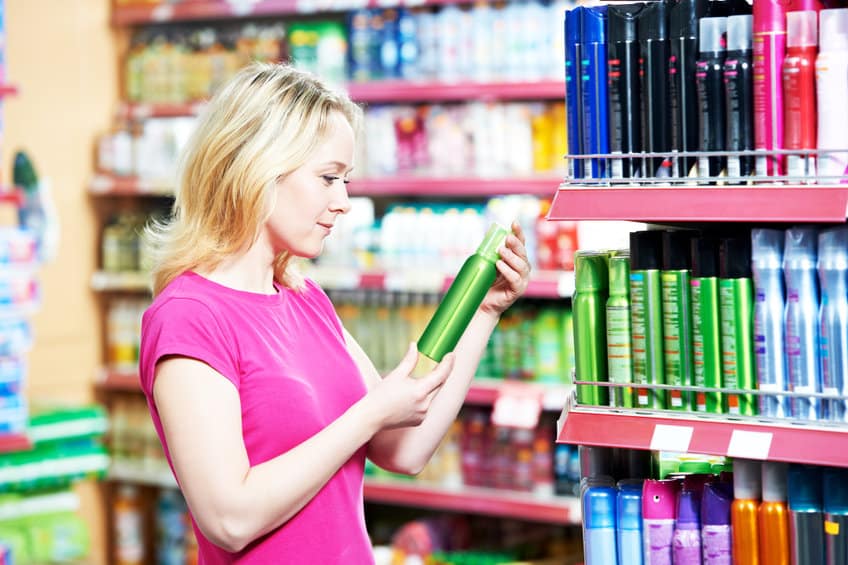The Skinny
The bottom line is there may be chemicals and compounds lurking in personal care products that, well, just aren’t doing users as much good as they’d imagine. Problems, in fact, can occur when soaps, hair care products, shampoos and alike contain chemicals or ingredients that give certain people problems. What’s particularly troubling is that at-risk users may not realize what they’re getting in any of these given products—and consequently what dangers they may be facing. Awareness is the key. WellWell has put together a list of some of the prime culprits. Read on.
The Slate
Triclosan
Triclosan can be found in lots of seemingly safe products such as soaps, body washes, hand sanitizers, toothpaste and cosmetics because of its anti-bacterial and antifungal component. The purpose for putting triclosan in these products may be worthy but it is linked to skin sensitivity, liver damage and hormone disruption. There are some indications it may even help cause cancer. Beyond these concerns, there is some thought that these antibacterial soaps are no better than the old fashion variety.
Phthalates
Phthalates are applied to help soften and increase flexibility of plastics in cosmetics. As such they’re found in nail polish, hairspray and related plastic materials to help the item in question hang on a person’s skin. The concern for phthalates is that they may do a number on a person’s endocrine system and possibly cause birth defects. Several types have already been banned from children’s products.
Formaldehyde
Formaldehyde strangely enough can be lurking in some cosmetics like hair smoothing products, which shouldn’t by itself be worrisome. The human body, after all, produces small amounts, which do not harm. But in large quantities, formaldehyde can generate allergic reactions in the eyes, nose, throat and skin. It can also lead to asthma and cause menstrual disorders.
Sodium Lauryl Sulfate (SLS) and/or Sodium Laureth Sulfate (SLES)
Personal care products such as shampoos and facial cleansers often contain SLES and SLS because they help generate lather or foam. There is plenty of debate out in the market as to how dangerous, if at all, sulfates are. To date, however, conclusive evidence on any exact danger remains elusive. What’s not in debate, however, is that excessive use of the sulfates can cause skin irritation, rashes, dandruff and hair breakage.
Hydroquinone
Hydroquinone is a well-known component of products used to brighten a person’s skin. It is, however, linked to cancer and organ toxicity, which resulted in it being banned in over-the-counter products since September 2020. Yet even with the ban, it is still possible to encounter products with hydroquinone, particularly skincare products like serums, creams, and gels.
Siloxanes
They also go by cyclical silicones and are found in a wide variety of cosmetic and skincare products. They have not only been linked with endocrine disruption, but they also aren’t great for the environment, making them a double unwanted whammy.
Methylene Chloride
Okay, it may smell mild and sweet, but Methylene Chloride is in the Volatile Organic Compound (VOC) family that is reputed to cause cancer. The compound, which is used in aerosol deodorant, hair spray and other aerosol spray products, may also do a number on a person’s sight, hearing and motor functions.
Eyes Up
Is there a chemical or compound you avoid in personal care products? Let us know at info@wellwellusa.com.
WellWell editors independently identify services and products of interest. If readers purchase anything through the associated links, WellWell may earn a commission, which goes to support our work. Learn More.












